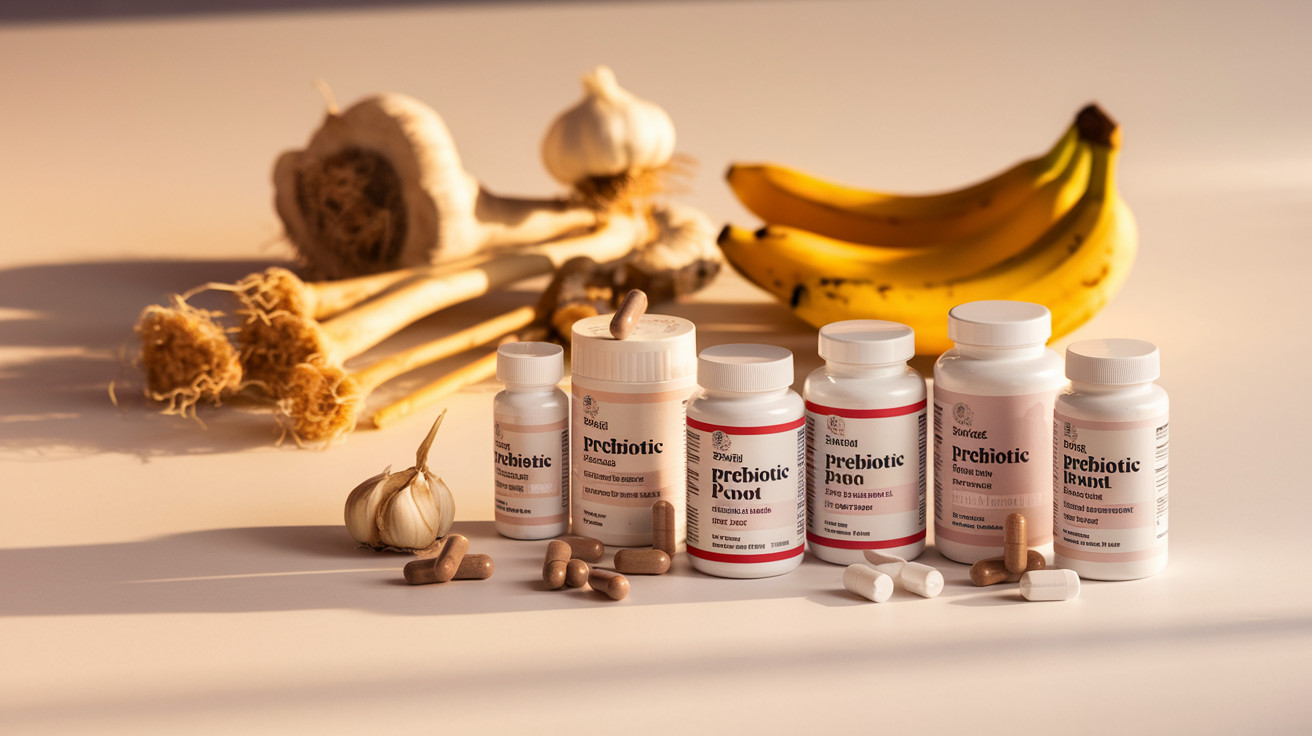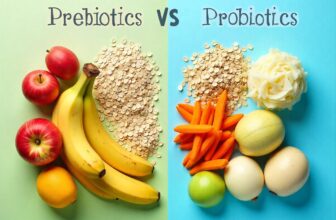
Does your gut often feel like a rebellious teenager – unpredictable, troublesome, and completely out of control? You’re not alone. From embarrassing bloating to unexpected skin breakouts and stubborn weight issues, an unhealthy gut can wreak havoc on your entire body. 🤔
Enter probiotics – your gut’s best friend and personal health superhero. These tiny but mighty beneficial bacteria have been making waves in the wellness community, and for good reason. They’re not just about improving digestion; they’re revolutionizing how we approach everything from skin health to weight management. ✨
In this comprehensive guide, we’ll dive deep into how these microscopic warriors can transform your health from the inside out. From understanding the basics of gut health to discovering practical ways to maximize probiotic benefits, you’ll learn why these beneficial bacteria might just be the missing piece in your wellness puzzle. Let’s explore how probiotics can be your secret weapon for achieving a healthier, happier you. 🌟
Understanding Probiotics and Gut Health
What are Probiotics and How They Work
Probiotics are beneficial live microorganisms that support your digestive system and overall health. These friendly bacteria work by colonizing your gut, creating a balanced microbiome that aids in digestion, nutrient absorption, and immune function.
Different Strains and Their Specific Benefits
Common probiotic strains and their benefits:
| Strain | Primary Benefits |
|---|---|
| Lactobacillus acidophilus | Digestive health, immune support |
| Bifidobacterium bifidum | Gut barrier protection, reduces inflammation |
| Lactobacillus rhamnosus | Mental health, allergy prevention |
| Saccharomyces boulardii | Diarrhea prevention, gut flora balance |
Signs of Poor Gut Health
Key indicators of compromised gut health include:
- Frequent bloating and gas
- Irregular bowel movements
- Unexplained fatigue
- Food sensitivities
- Mood changes
- Skin issues
Natural vs. Supplemental Probiotics
Natural probiotic sources:
- Yogurt and kefir
- Kimchi and sauerkraut
- Kombucha
- Miso
Supplemental probiotics offer concentrated doses and specific strains, while natural sources provide additional nutrients alongside probiotics. Both forms can be effective, but supplements ensure consistent dosage and targeted benefits.
A healthy gut microbiome forms the foundation for overall wellness, affecting everything from digestion to mental health. Now, let’s explore how these beneficial bacteria specifically help reduce bloating.
Probiotics as Bloating Solutions
Common Causes of Bloating
Bloating typically stems from several digestive issues that affect millions daily:
- Food intolerances (lactose, gluten)
- Excess gas production
- Poor digestive enzyme production
- Bacterial imbalance in gut
- Slow gut motility
How Probiotics Reduce Gas and Bloating
Probiotics work through multiple mechanisms to combat bloating:
| Mechanism | Benefit |
|---|---|
| Enzyme Production | Breaks down difficult-to-digest foods |
| Gas Regulation | Reduces excess gas formation |
| Gut Flora Balance | Crowds out harmful bacteria |
| Motility Support | Improves digestive movement |
Best Probiotic Strains for Bloating Relief
Specific strains have shown remarkable effectiveness in reducing bloating:
- Lactobacillus rhamnosus GG: Helps with lactose intolerance
- Bifidobacterium lactis: Reduces gas production
- Lactobacillus plantarum: Improves digestion speed
- Streptococcus thermophilus: Enhances enzyme production
These beneficial bacteria work by colonizing the gut and creating an environment where harmful, gas-producing bacteria cannot thrive. Clinical studies show that consistent probiotic supplementation can reduce bloating symptoms by up to 70% in most individuals within 4-8 weeks of regular use.
Now that we understand how probiotics combat bloating, let’s explore their fascinating connection to skin health and complexion improvement.
The Gut-Skin Connection
How Gut Health Affects Skin Appearance
Your gut and skin are intimately connected through what scientists call the gut-skin axis. When your gut microbiome is imbalanced, it can trigger inflammation that manifests on your skin through various conditions.
Probiotics for Acne and Eczema
Specific probiotic strains have shown remarkable effectiveness in treating common skin conditions:
- Lactobacillus rhamnosus – Reduces eczema severity
- Lactobacillus acidophilus – Helps control acne breakouts
- Bifidobacterium longum – Decreases skin sensitivity
- Streptococcus thermophilus – Improves skin barrier function
Best Probiotic Combinations for Skin Health
| Skin Concern | Recommended Probiotic Combination |
|---|---|
| Acne | L. acidophilus + B. bifidum |
| Eczema | L. rhamnosus + L. plantarum |
| Aging Skin | B. longum + L. casei |
| Rosacea | S. thermophilus + B. lactis |
Expected Timeline for Skin Improvements
Most people notice initial improvements within 4-6 weeks of consistent probiotic use. However, significant changes typically occur after 12 weeks of regular supplementation. Factors affecting results include:
- Current skin condition severity
- Diet quality
- Stress levels
- Sleep patterns
- Environmental factors
Now that we understand how probiotics influence skin health, let’s explore their role in weight management and metabolism.
Probiotics and Weight Management
Gut Bacteria’s Role in Metabolism
Your gut microbiome significantly influences how your body processes nutrients and stores energy. Different bacterial strains affect:
- Calorie extraction from food
- Fat storage mechanisms
- Blood sugar regulation
- Energy expenditure
How Probiotics Aid Fat Burning
The relationship between probiotics and fat metabolism can be understood through this simple breakdown:
| Probiotic Action | Weight Management Benefit |
|---|---|
| SCFA Production | Increases fat oxidation |
| Bile Acid Regulation | Improves fat breakdown |
| Inflammation Reduction | Enhances metabolic rate |
| Glucose Regulation | Prevents fat storage |
Appetite Regulation Through Gut Health
Beneficial gut bacteria help control appetite by:
- Producing satiety hormones like GLP-1 and PYY
- Reducing ghrelin, the hunger hormone
- Improving insulin sensitivity
- Stabilizing blood sugar levels
Research shows that specific probiotic strains, particularly Lactobacillus and Bifidobacterium species, can significantly impact weight management through these mechanisms. They work by optimizing nutrient absorption, reducing inflammation, and promoting healthy metabolic function.
With proper gut bacteria balance, your body becomes more efficient at maintaining a healthy weight. These beneficial microorganisms help create an environment that supports natural weight management processes rather than fighting against them. Now that we understand how probiotics influence weight, let’s explore how to maximize their benefits for optimal results.
Maximizing Probiotic Benefits
Optimal Dosage and Timing
Most probiotic supplements contain 1-10 billion CFUs (Colony Forming Units) per serving. Take probiotics on an empty stomach, 30 minutes before meals or first thing in the morning, to maximize absorption. Start with a lower dose and gradually increase to prevent digestive discomfort.
Combining Probiotics with Prebiotics
Prebiotics act as fuel for beneficial bacteria, creating a synbiotic effect when combined with probiotics. Here are key prebiotic sources:
- Bananas
- Jerusalem artichokes
- Garlic and onions
- Chicory root
- Asparagus
Foods That Enhance Probiotic Effectiveness
| Food Category | Examples | Benefits |
|---|---|---|
| Fermented Foods | Kimchi, Sauerkraut | Natural probiotic source |
| Fiber-Rich Foods | Oats, Legumes | Support bacterial growth |
| Anti-inflammatory | Turmeric, Ginger | Reduce gut inflammation |
Storage and Viability Considerations
Store probiotics in a cool, dry place below 70°F (21°C). Refrigeration extends shelf life for most strains. Check expiration dates and packaging integrity to ensure maximum viability.
Potential Side Effects and Adjustments
Monitor for temporary side effects like mild bloating or gas during the first few days. If discomfort persists:
- Reduce dosage temporarily
- Take with small amounts of food
- Switch to a different strain combination
- Consider a lower CFU count
Now that you understand how to optimize your probiotic intake, you’ll be better equipped to achieve your gut health, skin, and weight management goals.
A healthy gut microbiome serves as the foundation for overall wellness, influencing everything from digestive comfort to skin health and weight management. Probiotics play a vital role in maintaining this delicate ecosystem, helping reduce bloating, clear skin issues, and support weight loss goals through improved metabolism and nutrient absorption.
Taking care of your gut health doesn’t have to be complicated. Start by incorporating probiotic-rich foods into your daily diet and choosing a high-quality probiotic supplement that suits your specific needs. Remember to maintain consistency and pair these efforts with a balanced lifestyle for optimal results. Your journey to better health begins with a thriving gut microbiome.






